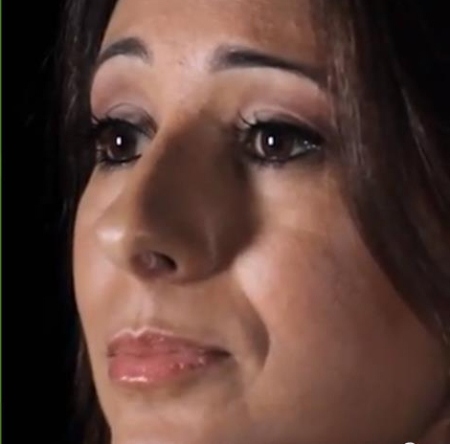
Claire Azzopardi Lane:
Reading the article ?I didn?t know I was pregnant? by Claudia Calleja, surely elicited an array of different opinion and emotions in the Maltese readers, as I confirmed from the comments beneath the online article.
Talking about sexually related issues always opens a can of worms?and if sexually related issues are set in the same sentence with disability, it might open even two !
I respect the Grech family for bringing their story out in the public, I am confident that their intentions are those of bringing awareness to the lack of social justice and support in our country.? As for the way the story has been reported, I have in the past also commented about the way journalists in the media refer to people with disability both in terminology and attitude.? I find that journalists lack contemporary terminology and use dated terms when reporting, such as ?mental disability?. The attitudes are also very negative and reflecting a medical model of disability, with ?suffering? at the pinnacle of the storyline.
This might have been the first local report of a woman with intellectual disability becoming a mother, and please note she is a woman before anything else. On an international level she is not the first and will? not? be the last woman with intellectual disability to become a parent. It is no great surprise to me that this woman fell in love and had a child. Don?t we woman all fall in love at some point in our lives? Haven?t women had children (marriage or not), irrelevant of having an intellectual disability? The issue with women with intellectual disability, and with people with intellectual disability in general, is that they are perceived as asexual by society. The sexuality of people with intellectual disability has been ignored and feared, from the beginning of time, and not just in our country.? Yet in many developed countries this stigma of asexuality has been challenged and progress has been made in developing strategies that empower people with disability to live an equally fulfilling life where they have opportunities like anybody else.
So much so that European and International entities have set their agendas in place so as to protect the rights of people with disability to have such opportunities. The European Manifesto on Basic Standards of Health Care for People with Intellectual Disabilities (2003, pg.13) outlines that; ?people with intellectual disabilities have the same human rights as other citizens?.? Furthermore the United Nations Economic and Social Council (Rule No.9) declares that ?persons with disabilities must not be denied the opportunity to experience their sexuality, have sexual relationships and experience parenthood?.? While the Human Rights Act (Article 8) reconfirms the ?right to respect for private and family life? for people with disability.
Once the fact that people with intellectual disability have a right to a sexual identity, to procreate and to have a family, has been asserted we can now move on to the measures that need to be set in place in order to protect and empower this minority group.?? Such ?measures are all set in a framework of support and support has as many tentacles as an octopus. ?The initial support is to determine whether the person with intellectual disability is in a position to consent to having a sexual relationship.? Matters of capacity to consent have been engrained in British Law for decades now, while Malta is only just starting to bring the dust out from under the carpet as the KNPD works towards the implementation of the United Nations Convention on the Rights of Persons with Disabilities. ?For those unfamiliar to capacity to consent situations related to sexual activity, these are determined by the persons? ability to make informed choices, given that he or she is given the information in an accessible way, and is able to process it and retain it, thus using it when faced with the circumstance. Therefore support in the form of sex education is required from a young age and throughout the person?s life. Accessible and ongoing sex education for people with intellectual disability has been a requirement stated in the policies within services providing for people with intellectual disability as well as in National Sexuality Policies in various countries. Such education would in turn empower the person with disability to make informed choices, on whether to engage in a sexual activity or not, as well as on the use of contraception and ?family planning.
To remain on the theme of support and social justice, we have to look at the social support given to people with intellectual disability at different levels of their adult life.? We are not as yet a society giving people with intellectual disability the opportunity of deciding where they want to live as adults and with whom. We are not giving adults with intellectual disability the opportunity to be autonomous, which takes them further from being independent.? ?We are not supporting adults with disability to be part of our communities and truly be able to live up to their rights.? Furthermore rather than shouldering the responsibilities, our country lets the respective families to do so ? case in point the Grech family.? It is lack of resources in this country,? that initially drove the Grech family to move back to Malta to support this family member, given that the other option for? her was institutionalisation.? There not being support for the mother of this child to bring up her daughter,? is also a result of lack of resources, which we might have not yet even considered in this country.? Assuming that the respective families of persons with disability will? take on all the required support is far from social justice. ?In this case Ms.Grech was blessed with a supportive family, who were ready to assume responsibility of all the needs of the mother and her child without separating the two from each other. There have been other circumstances where women with disability, and not necessarily intellectual disability, have been denied their right of motherhood, their child put in the care of a foster family, because they did not have neither social nor family support and could not raise a child on their own. Employment for Ms. Corinne Grech would certainly be a step forward towards her financial stability and independence. ??Yet such an opportunity needs to be backed up by other forms of social support such as personal care assistance and public childcare that also caters for the needs of children with disability.
Finally I must address the issue of people with disability and procreation in terms of medical issues.? It is reported in the article that the baby born to Ms. Corinne Grech ?was also disabled?.? At this point, not withstanding the unconstructive tone that sentence carried, it is worth making clear that children with disability, even genetic ones, are also born to non-disabled people. At the same time people with disability, even genetic ones, give birth to children who do not have a disability. It is a medical fact, that there is a risk, but there is a risk in any case.? Moreover life is valued, whether having a disability or not, and the baby born with a disability is still a very valuable baby, as I am sure it is for the Grech family.
With a Permanent Secretary devoting his energy to the disability sector,? we should be seeing measures being taken to fill in those gaps that had been left open for too long. Yet if we remain within the proposals of PL?s election campaign?s manifesto, will truly progressive emancipation of people with disability, such as sex education, sexual health and family planning, which were not on PL?s agenda, be contemplated?
Dr. Claire L. Azzopardi Lane is Alternattiva Demokratika?s spokesperson for Disability Issues and Sports. She is a specialist in the field of intellectual disability and sexuality and a Senior lecturer at the University of Malta.

Like this:
Loading...
cinnamon challenge lou dobbs rock salt david letterman march of dimes james randi wargames
No comments:
Post a Comment
Note: Only a member of this blog may post a comment.